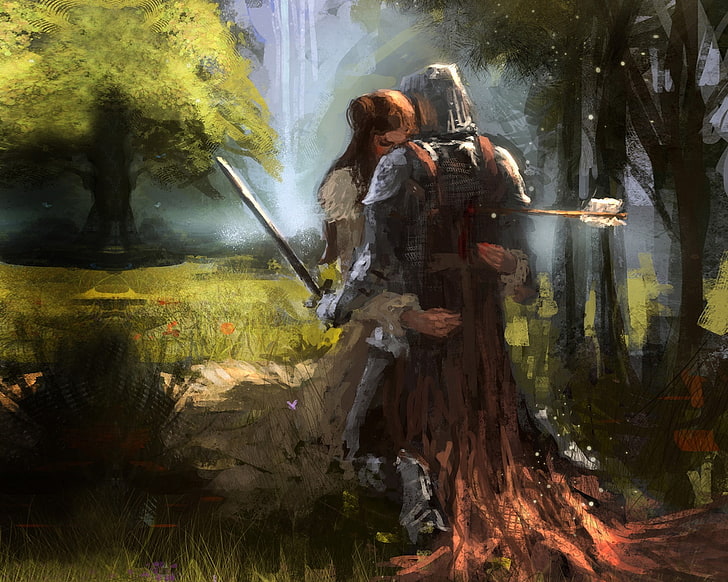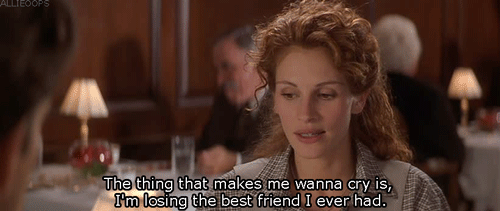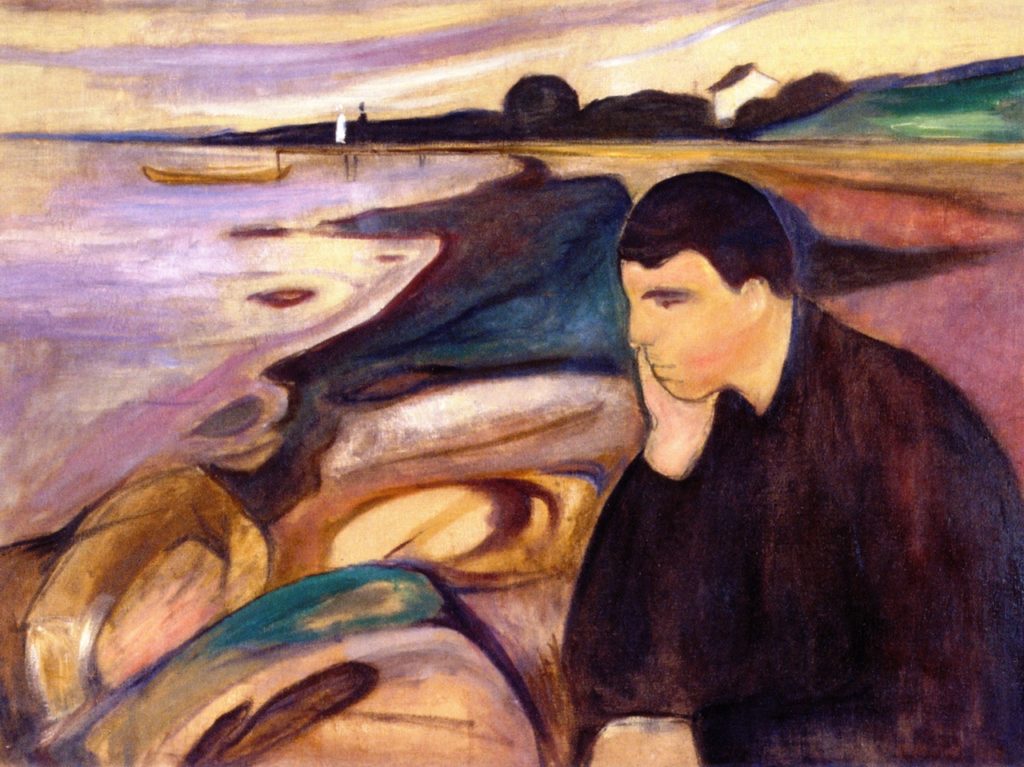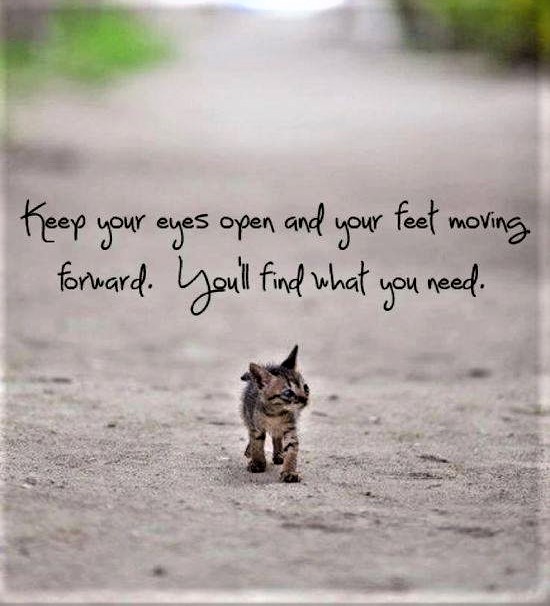
The one that got away is that special love with whom you had to part with because circumstances and timing were not favorable for the relationship to blossom. As time goes by, you wonder what you and that person could have had. While most of us find it easy to move on, a few of us can’t let go and get stuck, thus blocking our happiness. These five steps and techniques will change how you feel about your lost love and find inner peace. (Estimated reading time: 8 minutes)
“The bravest thing you will ever do is love again.”
— Madalyn Beck
Throughout our life journey, we’ll meet many people. Some of them stay for a season, while others last longer. Regardless of how long you know them, each one serves a purpose in your life.
Looking back on your history, I’m sure that there were certain people you encountered who left an indelible mark on your heart. In the context of love, it could be an ex, a high-school sweetheart, or even a friend who could have been more to you.
While most of us find it easy to leave the past behind and move on to find the one we’ll eventually settle down with, a few of us can’t let go of that one special being who carved a permanent place in our memories.
The popular term for someone who holds this significance in our emotional landscape is “the one that got away.” Due to a twist of fate, bad timing, or circumstances that were not favorable for the relationship to blossom, you two had to part ways.
As time goes by, you wonder what you and that person could have been. In a parallel universe, you can see yourself living with and loving them—doing what all blissfully happy couples do.
Sooner or later, reality dawns that the dream of you and them died long ago. All that’s left are tender feelings of bittersweet longing. You may wonder if you’ll ever find someone who can measure up and who can make you feel the way that they did.
Will you find love after loss?
Stuck in the past: why it’s so hard to let go

At our core, we are sentimental beings. That’s why we indulge in playlists of sappy love songs, and we shed a tear or two at the end of a romantic movie. These heartfelt reactions to anything touchy-feely are exactly what makes reliving the past of a relationship so alluring.
Embarking on these emotional time travels brings up a flurry of feelings and physiological reactions (excitement, sweaty palms, rapid heartbeat, release of feel-good hormones like dopamine) as if the events were happening today. This form of escapism becomes the drug of choice for many, especially if their present is unfulfilling.
We’re good at packaging the memories that we shared with our lost love. A cognitive bias called “rosy retrospection,” makes us idealize the unknown, especially the whirlwind relationships and flings that never actually progressed to the stage of a committed relationship.
When we see the past with rose-colored glasses, we become like a movie director who has free rein to embellish the script in a way that highlights the positive elements, minimizes the flaws, and fills in the gaps with details based on our true desires.
In this way, our memories with our beloved become a romanticized ideal that’s more pleasurable to recall but doesn’t necessarily represent reality.
Another reason we glorify the past is our inclination to fixate on lost opportunities —the one that got away is a lost opportunity on steroids! When we can’t reconcile with the past, we’re fired up to right our wrongs, and our focus becomes all about winning back what we lost.

In the movie “My Best Friend’s Wedding,” Julia Roberts’ character “Jules” demonstrates this behavior after her best friend told her that he was going to marry another woman. Suddenly realizing she’s in love with him, she does everything she can to prevent the wedding from happening. She even uses dishonest and manipulative ways to throw a wrench in the nuptials.
She soon realizes that being in the grips of her obsessive need to control brings out the worst in her. Her friend George raises the question of whether she is really in love with her best friend or if she is motivated by jealousy and the desire to “win” him back, disguised as “true love.”
Analyzing her actions, it’s possible that Jules’ attempt to recapture the close friendship she had with her best friend in college could be nothing more than an attempt to capture their youth and appease her ego.
The pleasure of melancholy: when loss can feel good

Reminiscing about the past is harmful in many cases, especially if it becomes obsessive and prevents us from finding happiness in the present moment. But in mild doses, the melancholy that arises from our recollections can be valuable and give meaning to our present and future.
Melancholy becomes almost an aesthetic rather than true sadness. Unlike depression or grief, it does not overpower us with disruptive thoughts, delusions, anxiety, and loss of desire. Instead, it’s a safe container in which we can admire our sensitivity and soak in our emotional depths.
It’s in this reflective sorrow that many artists, writers, and poets produce their best work. They give themselves the freedom to relive the memories of lost love knowing that it’s a mood they can contain and shake off whenever they want to.
Buddhist monk, Pema Chödrön, says that experiencing the pain that comes from dealing with loss opens us up, softens our hearts, and makes us more compassionate beings. In her book, “When Things Fall Apart: Heart Advice for Difficult Times,” she writes, “Knowing pain is a very important ingredient of being there for another person.”
Staying in the space of loss can serve us if we do it from a place of intention and power. But, at some point, we must learn how to balance our melancholy with practicality. We must stop allowing that person to take up so much space in our hearts and build healthy distance.
Reframing lost love: taking on a new perspective on “what could have been”

As someone who has had to contend with losing someone I felt was perfect for me in every way, I empathize with what you’re feeling now. I’m viscerally aware of how hard it can be to heal and to forget the vision you had of what could have been an incredible relationship.
Even if your rational mind knows that dwelling on lost opportunities isn’t good for you, a moment of weakness (like listening to a special song) is all it takes to send you into a tailspin of sadness and self-pity if you haven’t processed that loss.
The loss of someone special can impact your judgment in a way that makes it hard for you recognizing great potential partners. If you try dating them, you’re more likely to compare them to your past love and find ways to sabotage the connection.
What made it harder for me to let go was realizing just how rare such fated meetings are. Every now and then, life opens these portals during which we have limited time to seize an opportunity. I blamed myself for not having the maturity and foresight to appreciate this.
Over time, I concluded that blaming myself was getting me nowhere. It was only hurting my chances of recovering. I had to find closure, grow from it, and more importantly, get back to functioning at my peak levels so that I could become the best version of myself.
Based on my personal journey of transformation, here are five steps and techniques that changed how I felt about the one that got away and helped me find inner peace:
1. Address regret: Regret is a heavy emotion that can rob you of your happiness in the present. It’s tempting to dwell on what you did wrong or what you could have done differently. Instead of letting your feelings fester within you, process them by writing them down in a journal and taking a close look at the truth of them.
Use this exercise to examine and replace limiting beliefs such as “I can never move on” to “I can’t change the past, but I can let it inform my future choices.” To get a broader perspective, connect with those who went through similar experiences.
2. Rewrite the narrative of your story: Our minds are always crafting narratives to explain our experiences and feelings. These self-created stories are often distorted by the passage of time and our blind spots. By questioning those narratives, we can become objective about them. For instance, instead of seeing your relationship as a tragic loss, you can rewrite the narrative by focusing on the good times and how they made you happy in that phase of your life.
3. Take them off the pedestal: Those that get away are featured as somewhat larger-than-life characters in the story of our lives; that knight in shining armor (or enchanting princess) who rescued us from the doldrums of everyday living. Taking them off the pedestal does not diminish their significance, but rather, it humanizes them and reduces the fantasy element.
Instead of seeing them as irreplaceable and assuming we will never meet someone as witty, smart, gorgeous, or understanding as them, we open up to the possibility that we could meet someone just like them, or even better.
4. Focus on the lessons, not the loss: Like other painful experiences, we can gain immense wisdom by deconstructing the lessons. If you find yourself drowning in what you should’ve done or could’ve said, list what you learned about yourself and how you’ve changed instead. Maybe you’re a better communicator, or you’re more willing to take risks and share how you truly feel.
The way the relationship ended can also offer solid advice on what you could do differently in future connections. If you look at it as a learning experience, you’ll be able to see the positive role it played in your growth and getting over it becomes a lot easier.
5. Fill your days with meaningful and exciting endeavors: Often, people get stuck in memories of a past love because they don’t have activities that drive their ambition and give meaning to their lives. The key is to make our present circumstances engaging and fulfilling so that we don’t need to escape into a hopeful fantasy.
While it’s okay to let our minds wander to fond memories occasionally, we want to stay in the present for the most part. Keep your focus on moving forward, pursuing goals, and maintaining a positive outlook for the future.
Nothing in life lasts forever, including ourselves. Every relationship will run its course. Embracing impermanence means trusting that better things lie ahead for us, but it also means honoring what once was a part of our physical reality.
Like a precious gem we store in a jewelry box, we can cherish our memories with our special person and be grateful that life gifted us their sparkling presence.
All my best on your journey,
Seline

Question for you: What are some of the biggest regrets that you have when it comes to a past relationship? How can you change your perspective on the one that got away that you see it in a more positive light?
Did you like this post? Sign up below, and I’ll send you more awesome posts like this every week.

Hey Seline, I know this is a very personal topic. I appreciate you sharing your experience with us. Based on what I’ve seen….we all handle love and loss and betrayal in different ways. I always say that no one can tell you how to cope or deal with this kind of expereince. You have to do what is right for you and right at that moment and at that stage in your life. It’s good to have options and hear what others have done but ultimately, it is your choice alone! Peace and love to you.
Hi Naomi! You’re welcome! And thank you for sharing your thoughts with us. ❤️